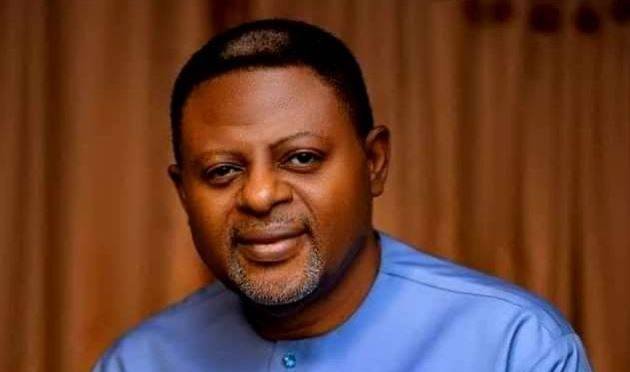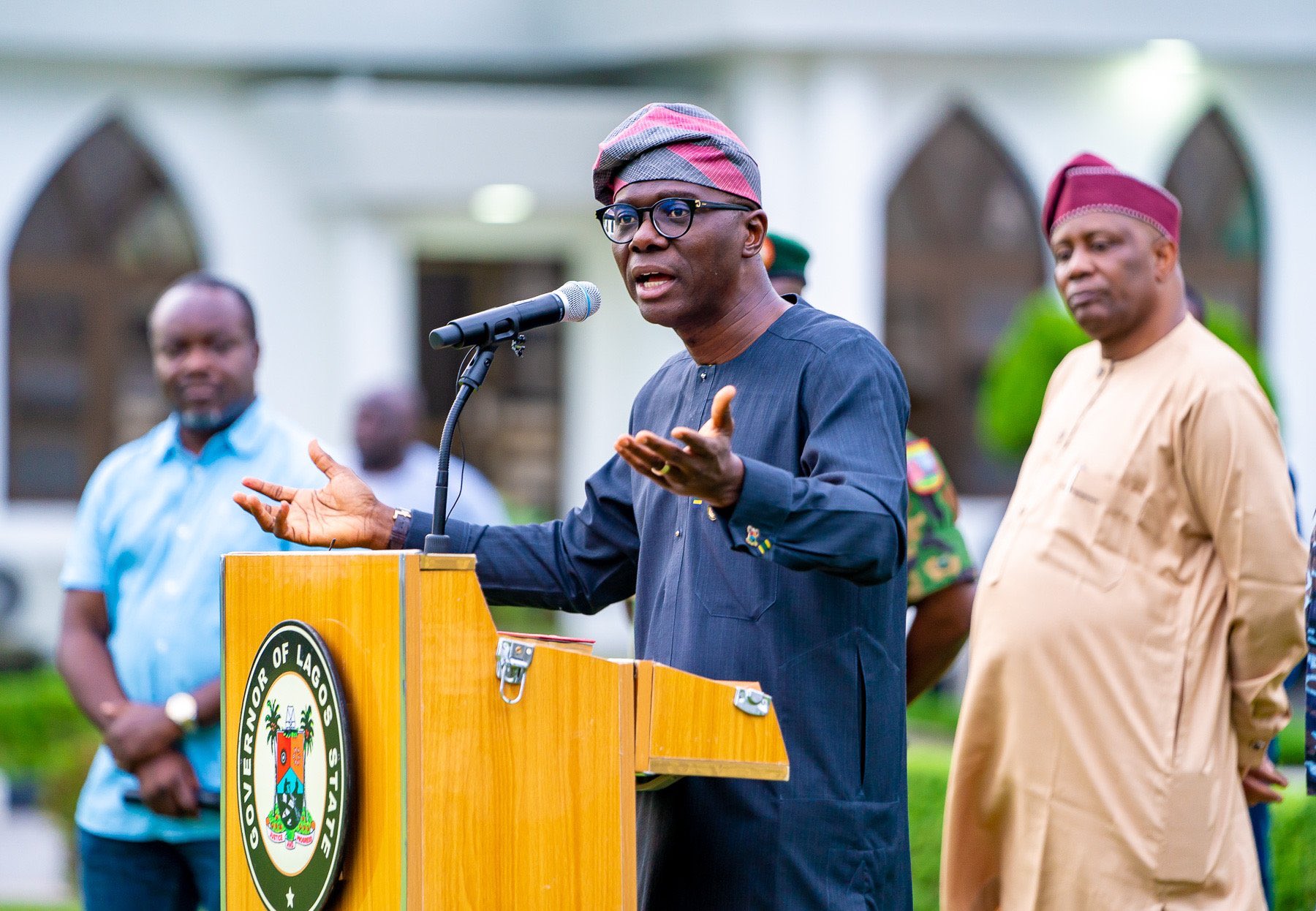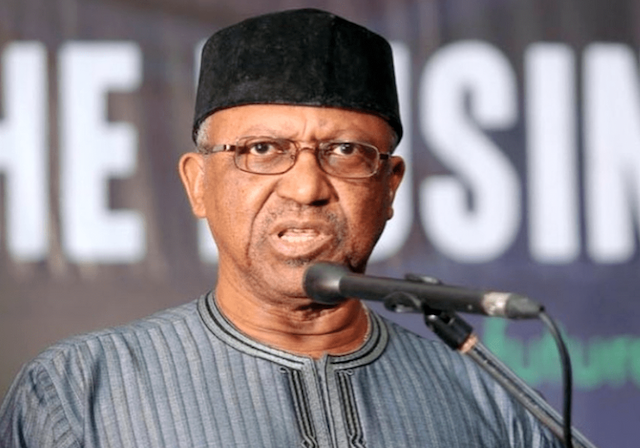By Dakuku Peterside
Nigeria is a country where there is a chasm between the leaders and the led. The distrust of the ordinary Nigerian for political office holders is such that most Nigerians celebrate when their leaders encounter tragic situations. If the governor takes ill in some states, a substantial proportion of the electorate would wish death on their state’s chief executive.
The primary reason for this is that some Nigerians see their leaders as unconscionable tyrants who are pillaging their states’ resources to the detriment of ordinary citizens who suffer in poverty and destitution. Many of the led do not understand how a governor cannot pay workers their wages while living in luxury and moving around in a convoy of exquisite SUV’s and guarded by a coterie of security operatives.
So, when nature or fate strikes in the form of illness, accident or death or other tragedies, the masses feel like the proverbial cow without a tail that relies on its gods to get rid of pestering fleas. So, they rejoice over the tragedy of their leaders.
Professor Babagana Umara Zulum, the incumbent executive governor of Borno State, is still a first-term governor and is different. The overall impact and import of his superintendence over Borno state’s affairs can be best measured when he finally exits the governor’s seat in Maiduguri. However, there appears to be a consensus that the governor is one of the shining lights of governance in Nigeria today. His performance during the relatively short time he has spent at the helm of affairs in Borno State, perhaps the state most ravaged by the unending Boko Haram insurgency in the country, has been nothing short of remarkable. Little wonder his people love and support him.
In his presentation at a lecture to commemorate my 50th birthday and the public presentation of my book titled: ‘Strategic Turnaround: The Story of a Government Agency’, the governor shared his thoughts on Nigeria’s national economic revival. What is striking about Prof. Zulum in the lecture is how he connected economy and security at both country and personal level, respectively. While he did not lay claim to being an economist, he got his economic fundamentals right. His message – increase productivity at all levels- then more citizens will gain employment and reduce criminality, was succinct.
Tackling the problem of Nigeria’s almost total dependence on crude oil as a means of earning foreign exchange, Zulum argued that a litre of orange juice and other fruit juices cost more than a litre of fuel. He wonders why Nigeria must not produce significant quantities of these products and sell them to the world to earn foreign exchange. His use of these products is symbolic, and if we look inward, there are many products that, if Nigeria focussed on producing and exporting to the world, would create more revenue than crude oil.
To illustrate this, a small country like Denmark makes a fortune from dairy products and eggs. Revenue in the Dairy Products and Eggs segment is estimated to amount to US$2,437m in 2021. The market is expected to grow annually by 2.16% (CAGR 2021-2025). In relation to total population
figures , Per Capita revenue of US$419.16 is the estimate of what can
be generated in 2021. In the Dairy Products and Eggs segment, volume is expected to amount to 751.7mkg by 2025. The Dairy Products and Eggs segment is expected to show a volume growth of 0.6% in 2022. The average volume per person in the Dairy Products and Eggs segment is expected to amount to 120.3kg in 2021.
Just imagine that per capita revenue from a product line in Nigeria (Palm oil , dairy, rice, cocoa or any other product) is US$419.16, which means that the total revenue from that product or products will be USD 83,832m in one year. This alone is about a fifth of Nigeria’s 2020 GDP. The impact on Nigerian citizens’ lives and the multiplier effect would be too significant to ignore. Then think of other products that Nigeria has a comparative advantage in producing.
Zulum further argued that these products’ production would create millions of jobs more than crude oil extraction , which has low job creation potential . With higher income from productivity comes infrastructure development, social re-engineering, improved quality of life, reduction in crime, and peaceful coexistence of different ethnic nationalities.
Besides, he advocated for reducing the cost of governance by focusing on priorities, supporting the civil service so that they would become more professional and more productive and concentrating on education and putting in place infrastructure that will drive growth. The governor’s mention of effective civil service as imperative to national development brings to the fore a system that has been the bane of Nigeria’s development.
Civil service is one of the primary agents of growth in any nation. The transformation of any society or system depends mainly on the effectiveness and efficiency of its civil service, particularly in developing countries. The civil
service is probably the most critical institution of a state affecting citizens’ lives because of the roles it plays.
The Nigerian civil service since the 1990s has become a cog in the wheel of the country’s development. These are some groups of people whose principal function is the implementation of government policies. Civil servants are not policymakers and thus cannot question government policies. Whenever the government makes a policy, it becomes the civil servants’ role to implement the policy the way the government of the day wants it to be.
In ‘saner climes’, the civil service serves as a modern institution that revolutionizes and maintains an efficient way of organising society, organisations, and institutions. They are supposed to be a complex organisation with seemingly permanent officials appointed to
assist executives in the formulation, execution, and implementation of the government policies in ministries and extra-ministerial departments. They play a crucial role in achieving the federal and state governments’ economic, social, and developmental objectives.
These countries look up to the civil service to implement development goals and administer government policies on a day-to-day basis and play significant roles in formulating development strategies, policies, and programmes in such a way that will stimulate accelerated social and economic changes. Such desired changes include reduced unemployment, increased social products and more equitable redistribution of income. The anonymity attributes imply that civil servants should be seen and not heard, while characteristics such as neutrality, impartiality, and permanence enable the civil servant to be effective and productive.
However, the Nigeria experience is different from the above. The Nigerian civil service currently appears antiquated and contributes little to attainment of national objectives. Its current state of disarray has impacted negatively on governance in the country. Many Nigerians regard the civil service as a theatre of sharing the proverbial national cake among the country’s major ethnic and sub-ethnic groups, instead of a veritable institution to help achieve national aspiration.
The service suffers from undue politicization, lack of accountability, personalisation of governmental affairs, institutionalised corruption, indiscipline, and ethnicity. Bureaucratic bottleneck wrought mainly by lack of flexibility continues to bedevil the Nigerian civil service.
It suffices that most of the problems of the Nigerian civil service are made worse by civil servants themselves. Take the issue of poor remuneration. Most of the Nigerian civil servants’ salary is still relatively low, which makes many of them resort to sharp and unethical practices for survival. Meanwhile, some civil servants live above their income as many of them demand bribes before performing their regular duties and defraud and embezzle government money earmarked for developmental purposes.
The Nigerian civil service is also bloated. Some of our civil servants do not have specific responsibilities. They roam around aimlessly from day to day, and at the end of the month, their truancy is unduly rewarded with a salary for doing virtually nothing.
There are also the problems of the use of obsolete equipment and lack of training for civil servants. In many public institutions in the country, civil servants would use outdated equipment suitable only for museums in many countries. Many civil servants in Nigeria cannot operate personal computers, and impact of multiple trainings organized for them are not felt .
To get it right in Nigeria, we need to create a civil service that sees itself as a tool for promoting growth, peace, stability, development, and democracy. The Nigerian civil servant should receive training regularly, and they should be up to date with the use of modern equipment, techniques, and methods. This training must be compulsory and geared towards the achievement of specialisation and professionalism to improve productivity.
Merit, long sacrificed on the altar of ethnic sentiments, religious considerations, crass favouritism, and sometimes prurient cravings, should be restored to the Nigerian civil service. If we are to meet modern national development challenges, appointments and promotions should be devoid of ethnicity, religion and undue favouritism and should be strictly on merit and qualification.
Most importantly, the remuneration and other benefits of civil servants should be realistic and adequate. A situation whereby a graduate cadre civil servant earns a paltry N50, 000 every month is a misnomer as it should be clear to all concerned that without unethical practices, such a person would hardly survive on that salary. Government should strive to make the civil service attractive in all respects.
Civil servants should be accorded greater recognition and responsibility. They should be motivated to stimulate them to put practical efforts because individual productivity capacity depends mainly on one’s psychological satisfaction level. This will increase the level of commitment, hard work, creativity, and disposition among the civil servants.
Finally, in a dynamic, fast-changing, technologically driven world, the Nigerian civil service must imbibe the practice and culture of invention and innovation both in imagination and routine works and develop appropriate tools for anticipating change and challenges. It must be able to institutionalise change in modern governance and societal development.
Nigerian civil servants must rediscover the cherished tradition of service, loyalty, and excellence that they were hitherto known for and complement them with integrity, credibility, leadership, innovation, and transparency in the performance of their duties and management of scarce resources.
In summary, Zulum pointed to two essential things needed to foster new economic growth and social stability – Productivity ,and efficient and effective civil service. It is time we listened to reason and fundamental truths about improving every Nigeria’s lives and put in place the structures and systems that will make Nigeria work.







